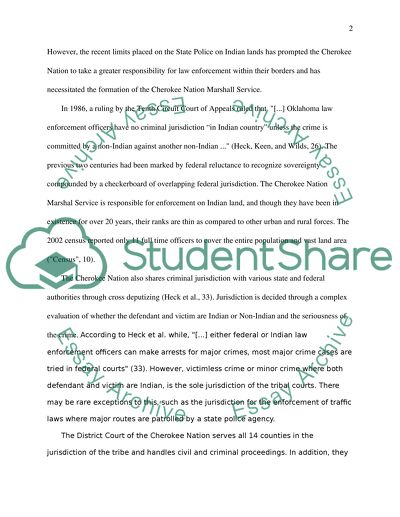Cite this document
(The System of Justice of the Cherokee Nation Coursework Example | Topics and Well Written Essays - 1000 words, n.d.)
The System of Justice of the Cherokee Nation Coursework Example | Topics and Well Written Essays - 1000 words. https://studentshare.org/law/1515134-cherokee-indian-nation
The System of Justice of the Cherokee Nation Coursework Example | Topics and Well Written Essays - 1000 words. https://studentshare.org/law/1515134-cherokee-indian-nation
(The System of Justice of the Cherokee Nation Coursework Example | Topics and Well Written Essays - 1000 Words)
The System of Justice of the Cherokee Nation Coursework Example | Topics and Well Written Essays - 1000 Words. https://studentshare.org/law/1515134-cherokee-indian-nation.
The System of Justice of the Cherokee Nation Coursework Example | Topics and Well Written Essays - 1000 Words. https://studentshare.org/law/1515134-cherokee-indian-nation.
“The System of Justice of the Cherokee Nation Coursework Example | Topics and Well Written Essays - 1000 Words”. https://studentshare.org/law/1515134-cherokee-indian-nation.


